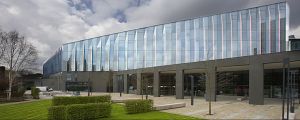1. A Marie-Curie ITN: Social Science Aspects of Fisheries for the 21st Century
SAF21 is an interdisciplinary and intersectoral network that embeds the social scientists of the future into EU fisheries management systems. It trains experts in analysis of human social behaviour for the better management of socio-ecological complex systems such as fisheries. Behaviour of fishers is complex as trust building and norms acceptance influence compliance with fishing regulations in unpredictable ways. The desired behaviour of fishers is often different from the actual subsequent one as those involved adapt to and find ways around new regulatory regimes, often with catastrophic consequences on resources. Therefore, an integrated understanding of the fine mechanisms governing fishers’ behaviour in relation with the regulative processes is needed, to the benefit of decision makers, fishing industry and the environment alike. Academic research and training have insufficiently reflected this need.
SAF21 will contribute to rectifying this by training researchers in using tools of the 21st century, e.g. computational sociology techniques, to analyse this topic from a multitude of angles: public understanding of fisheries, trust and norms, social and regulative norms, social marketing of fisheries norms, stakeholders interaction in different management systems and socio-economic resilience.
This knowledge will initiate the development of innovative management strategies, especially when it comes to shifting to new regulatory regimes. The wide-ranging training envisaged will offer a structured doctoral training in academic and transferable skills in addition to highly intersectoral non-academic mobility opportunities. Thus, the SAF21 candidates will have the necessary skills and experience to cross disciplines and work sectors. SAF21 will provide researchers the opportunity to fulfill their scientific social responsibility at a higher level than conventional doctoral programs, by ensuring significant time and training for public engagement and outreach.1. A H2020 project: Digital Do It Yourself
Digital do it yourself (DiDIY) is a new socio-technological phenomenon in which the widespread availability of digital devices supporting the convergence of physical and informational components and the growing accessibility of knowledge and data through open online communities presage scenarios in which the distinction between users and producers of physical artefacts is fuzzy and new opportunities and threats emerge. DiDIY-related technologies and social practices amplify the creativity and skills of individuals who affordably develop digitally self-made objects, e.g., unique-by-design objects designed by 3D modelling software and generated by 3D printers or networked smart objects equipped with microcontrollers dealing with context information via sensors and actuators. Two network effects catalyse DiDIY: what is custom produced by an individual could be the outcome of contributions from a world-wide community of developers sharing their interest towards open innovation, thus operating as knowledge multiplier; what is made available here and now by a smart object could be the aggregation of signals from a set of sources in the network, thus operating as information extender.
In this (presumed) industrial revolution the project aims at:
The project will study how DiDIY is
The development of a systemic interpretation is the challenge for the multidisciplinary project team, which will collaboratively explore a complex phenomenon with implications on identity, privacy, reputation, responsibility and safety and will offer a roadmap fostering a DiDIY-based human-centric European development.3. A project with Manchester City Council: Insight to Intervention
The scope of this project will principally focus on the development of a family typology & risk tool, but will also requires some elements of broader analysis to support the development of these tools, for example understanding how demand for service is generated by particular presenting issues (a child safeguarding concern is not in itself an issue, but rather a results of risk factors in the family as a whole).This project would have the following aims:
- To identify the relative proportions of different kinds of antecedent events that precedes the family coming into the TF category allowing an approximate assessment of potential indicators of risk.
- To cluster families into different types depending on their similarity, to see if there is a sensible categorisation of kinds of situation they are in. This could allow a better understanding of the dimensions under which TFs differ or whether there is simply a continuous range of cases.
- To understand how the places that people live and the dynamics of that place affect the people / families that live or migrate there. For example, changes in local housing allowances have led to a natural movement of the most vulnerable into lowest value rental areas.




